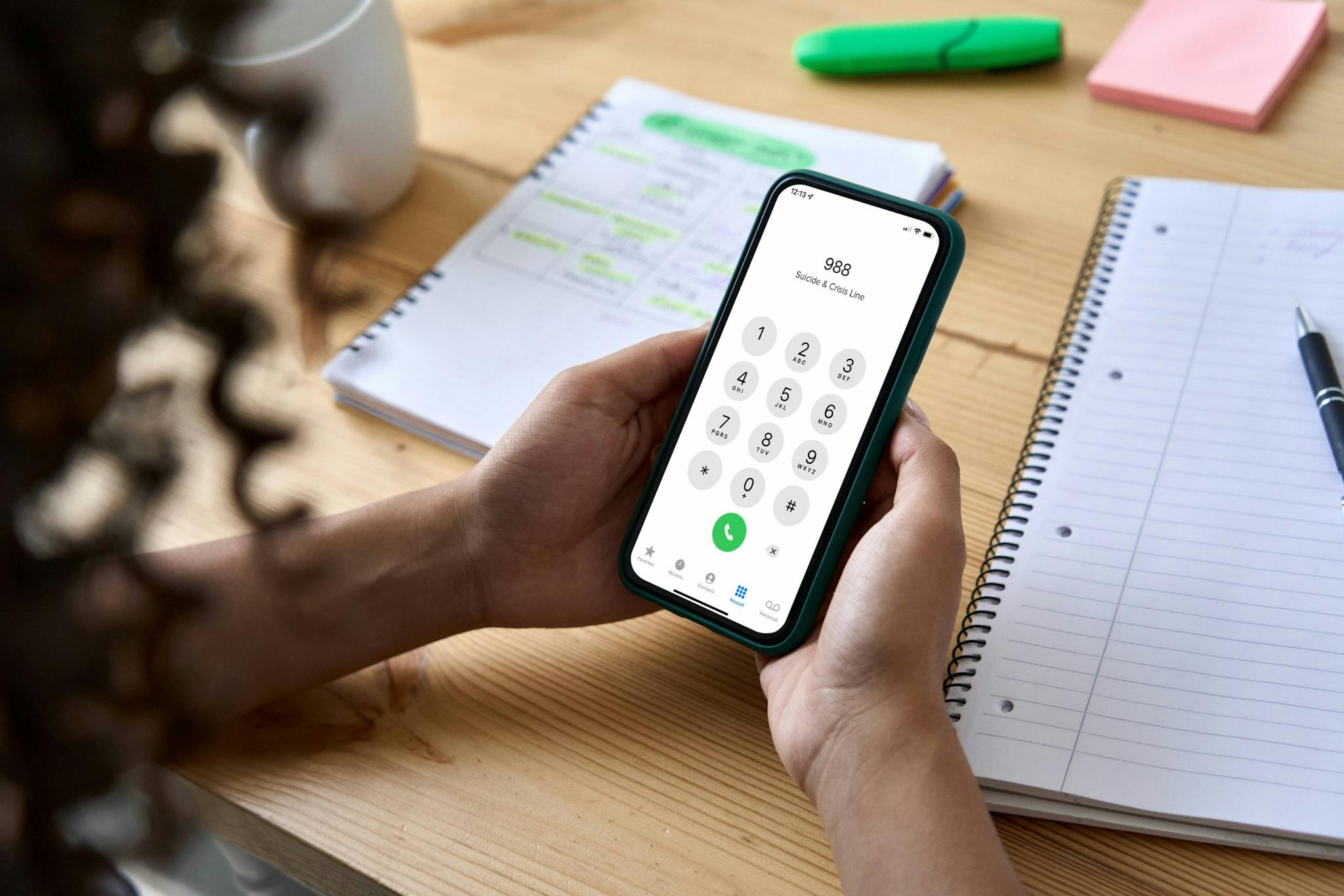
2024-10-24T14:28:12
ADHD Basics: What You Need to Know
- Behavioral Health
- Family Medicine
September 14, 2022 | Behavioral Health
Specialties:Behavioral Health

Suicide is never an easy topic to discuss, yet the American Foundation for Suicide Prevention records an average of 130 suicides per day in the U.S. In Utah alone, suicide is the 1st leading cause of death for people ages 10-24. Fortunately, improvements are consistently being made to give struggling individuals hope; namely, the new 988 Suicide and Crisis Lifeline.
The 988 Suicide & Crisis Lifeline is a service that provides free and confidential assistance to people experiencing a suicidal crisis or emotional distress. As of July 16th, 2022, the 988 Lifeline is available to anyone living in the United States 24 hours a day, 7 days a week.
Individuals can dial 988 and be promptly connected to one of 200 crisis centers across the nation. A trained counselor will attentively listen to the caller, offer support, and provide additional mental health resources if needed.
In 2020, Congress passed a law that changed the previous suicide hotline number (1-800-273-8255) to 988. The purpose behind the shortened number was to help give individuals struggling with their mental health quicker access to suicide prevention resources. Both phone numbers are currently active and will direct callers to a local crisis center.
The 988 Suicide & Crisis Lifeline provides several risk factors and warning signs that could determine whether someone could benefit from calling the helpline.
Risk factors include (but are not limited to):
Warning signs include (but are not limited to):
Allan Pauloe, clinical mental health counselor (CMHC), and Revere Health employee, offers some perspective on the benefits of the 988 lifeline, stating that the initial problem with the 911 emergency hotline was that it “wasn’t set up to address mental health needs.”
The primary goal of this new number is to make it easier for people to call for help,” he says. “Lawmakers and mental health advocates also see this launch as an opportunity to transform the mental health care system and make care easily accessible everywhere in the United States.
You can read more of his insights on mental health here.
While the 988 lifeline is saving countless lives, we at Revere Health want to stress the importance of taking a preventative approach to your mental health. If you, or someone you know, is experiencing symptoms of depression, anxiety, or suicidal thoughts, consider contacting our Behavioral Health offices and scheduling an appointment with one of our compassionate licensed clinical social workers.

WRITTEN BY:
Zahra Nielsen
Zahra Nielsen currently serves as Revere Health’s Community Relations Specialist. She earned her bachelor’s degree in Behavioral Science from Utah Valley University with the intention of working with at-risk communities, but she has since found a love for community engagement, volunteerism, and outreach. Since graduating, her career has taken her to non-profit organizations across the country. From Washington D.C, New York, and Salt Lake City, she has had the opportunity to work with notable organizations such as the National Council for Adoption, Volunteers of America, and United Way. After years of working in different areas of community engagement, Zahra has found her niche in writing. She hopes to pursue this creative form of outreach as a way of inspiring community members to be mindful of their well-being and the well-being of others. In her free time, Zahra likes to practice and teach yoga. She also enjoys live theatre, listening to music, and watching endless hours of quirky movies and TV shows with her husband.

2024-10-24T14:28:12

2024-07-02T11:42:04

2024-04-09T04:30:04

2024-01-08T11:58:49
This information is not intended to replace the advice of a medical professional. You should always consult your doctor before making decisions about your health.